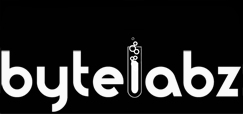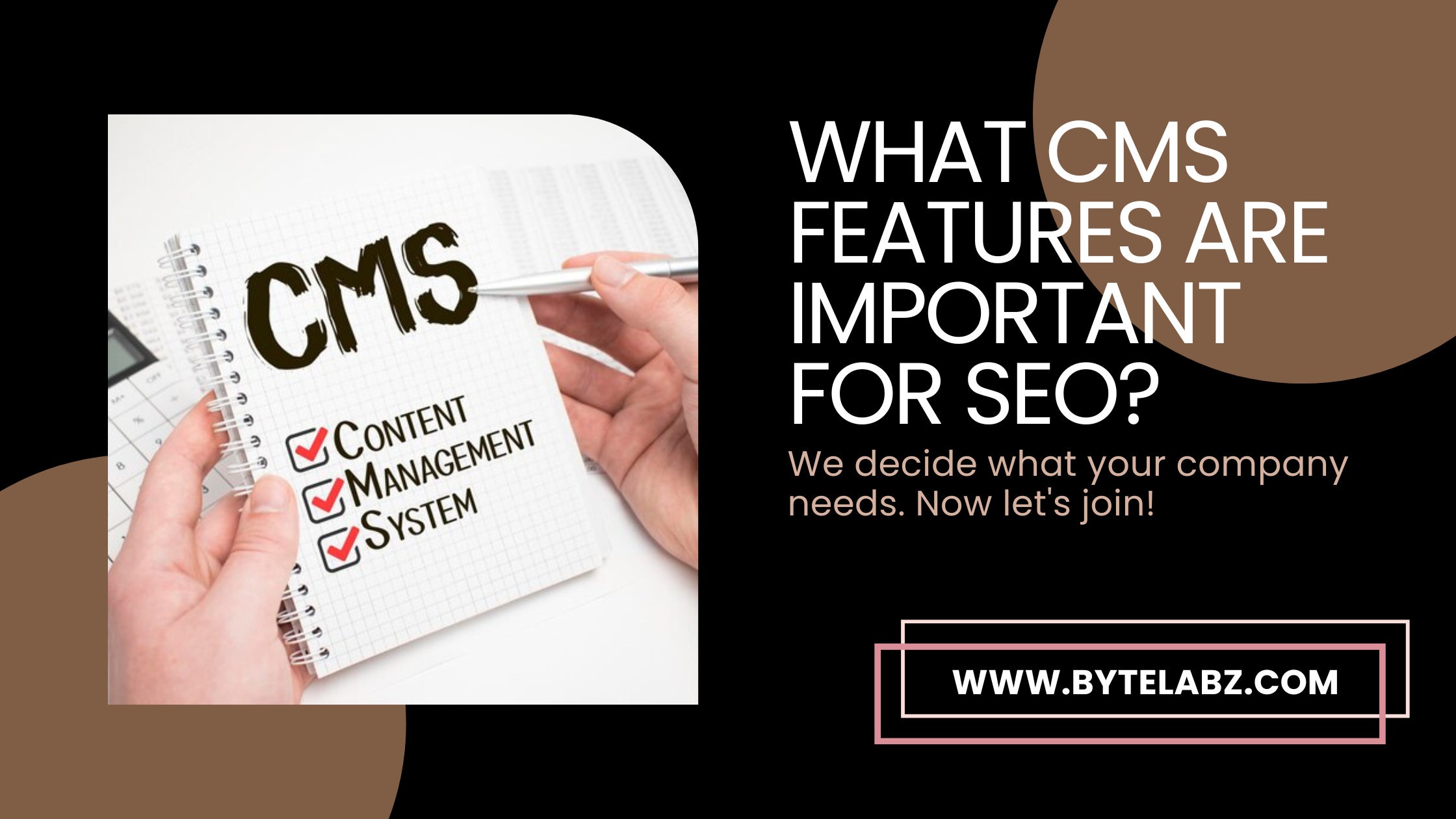Looking for the ideal CMS to maximize your Seo rankings
Users that lack coding skills are blessed by content management systems. Even if you lack sophisticated technical skills, a
content management system (CMS) will allow you to effortlessly publish and update material throughout your website. However, usability isn’t the only factor to consider. Choose a CMS having SEO in mind if you desire your website to rank in Google’s top 10.
We’ll talk about what constitutes the greatest CMS for SEO in this blog post, as well as which well-known systems function better than others on sites that primarily rely on organic search traffic. Without further ado, let’s get started with a list of characteristics that a CMS should have in order to be SEO-friendly.
What CMS attributes are crucial for SEO?
The overwhelming consensus is that Google employs more than 200 ranking criteria. Well, the majority of the things that affect a website’s technical performance as well as on HTML elements have to do with the CMS. The pages on your website should be simple for Google to scan, comprehend the content of, and connect to relevant keywords. Therefore, using appropriate HTML mark-up is crucial.
Additionally, there are a lot more CMS functions that are important for SEO. Although some of these are essential, others are only good to have.
Setting up page components should be possible.
Start with the page components you encounter each time you build a new page. These include the headers, page URL, title tag, and Meta description. It’s crucial to use them correctly if you want a page to score well in search. And this is why:
- It is preferable for SEO to have slick, human-readable URLs since they inform people and search engines what a website is about;
- When consumers view titles and Meta descriptions in SERPs, they can further determine whether a website is worthwhile of clicking through;
- Users would receive a picture ALT tag if the picture could not be loaded. In order to make sense of a picture & promote it in image searches, Google also employs ALT tags. ALT tags are also used by screen readers, which are used by persons with visual impairments.
- Headings make the content easier to scan for users and Google.
One must be able to add and/or change all the aforementioned features with ease if your CMS is SEO-friendly. Additionally, a decent CMS will advise you to lengthen your Meta tags or include extra headers.
Technical difficulties to be resolved
Let’s now go into the specific technical that affect your rankings.
- Page frequency
Page speed is without a doubt there at top of the list, in my opinion. Your CMS can be to responsible for a website that loads slowly, which will harm your rankings. Your strongest allies in this situation are cleanly written code and efficient pictures; bloated code should be avoided as much as possible. As of 2018, mobile search is included in the speed ranking criteria.
- Basic Web Vitals specifications
Page interaction signals have been an element of Google’s ranking algorithm since May 2021. With the Core Web Vitals report, webmasters can immediately assess the performance of their pages and learn how to improve the user experience. LCP, FID, & CLS are the three measures covered in the report.
- The biggest contentful paint, or LCP, indicates how it takes for the page’s primary content to appear.
- FID (first input delay), which measures the time between a visitor clicking a link and the browser responding to that action, aids in determining a visitor’s initial impression.
- The visual stability of page components is measured using the CLS (Cumulative Layout Shift) formula.
- Optimizing for mobile
Make sure your content is mobile optimized as you prepare you website again for
Google Search changes. Google has always pushed webmasters to make their websites mobile-friendly. You have no choice but to optimize now that mobile search is continuously expanding & mobile-first indexing is fully operational.
- Redundant pages
Duplicate material is another issue to be concerned about. It’s only a small issue if numerous URLs on your website point to pages that are almost identical or appear quite similar. The Panda algorithm may penalize you if you have a lot of these kinds of URLs. A CMS should let you add a “canonical” tag to the original URL in order to fix the issue. Search engines will then be able to decide which URLs to rank and which ones to exclude from their index.
- XML sitemap with the robots.txt file
Finally, it is possible to stop the issue of duplicate material in its tracks. Just restrict URLs for crawlers using a robots.txt file to prevent search engines from indexing duplicate content in the first place. This is where you conceal all of the pages that must be hidden from search engines, not simply duplicate ones. A solid CMS will make it simple for you to create and customize both an XML sitemap and a robots.txt file. The latter aids Google in finding all necessary pages.
What are the main CMSs’s offerings?
Let’s now examine the most widely used CMSs. I’ll discuss both the features that are included by default with each platform and those that may be added by using plugins or extensions. I’ll go into further detail whether any CMS features might be detrimental to your
SEO. Let’s check off each item on the SEO checklist to determine whether the top CMSs in the world can do it.
- Word Press may be used to create any type of website.
Word Press originally served as just an open-source blogger, but dozens of plugins and themes have made it possible for it to currently work just as well for e-commerce or, for example, travel booking websites.
It’s considered that Word Press is SEO-friendly right from the box. You may create custom URLs, appropriate headers, and picture ALT tags with the basic installation. And I think that’s all. You’ll need some plugins because
Word Press focuses on them if you want good SEO.
The most widely used Word Press plugin to present is Yoast SEO. You’ll have command so over Meta tags and other technical elements using it. Setting canonical URLs, enabling breadcrumbs, creating 301 redirects, and modifying your XML sitemap are all made simple with Yoast. Additionally, it can produce a robots.txt file on you. Therefore, the majority of the items on our checklist are covered by just one plugin and regular Word Press capabilities. You’ll need to add extra plugins in order to handle the remainder.
- Joomla, a scalable Word Press substitute
The second-most popular CMS is
Joomla. Like Word Press, it is free and open-source. Themes and plugins are also used by Joomla, although on this platform they are referred to as templates and extensions. Another distinction would be that Joomla is less user-friendly and intuitive than Word Press, which makes it a less desirable option for beginners. It is, nevertheless, more adaptable.
With its ability to properly arrange website material without the need of extensions, Joomla is excellent for larger websites with many of menus, sections, and categories. Additionally, Joomla allows you to utilize various theme settings or even several templates throughout the website.
- A technologically cutting-edge answer for massive websites is Drupal.
The Big Three inside the CMS field are followed by
Drupal. In terms of scalability and security, it much outperforms Joomla and Word Press, although it is not quite as user-friendly. In fact, unless you’re a developer, you probably won’t be able to navigate Drupal with ease. However, Drupal is a fantastic choice for large websites that must manage tens of hundreds of pages and visitors. Ironically, Drupal has a tonne of fantastic capabilities that are easily accessible through modules, but Word Press requires significant coding to achieve the same functionality.
- The greatest CMS for small companies and personal websites is Wix.
You won’t have a lot of trouble using
Wix if you’re searching for a basic website builder. It has integrated SEO techniques, so you won’t be overwhelmed by the sheer number of extensions. With Wix SEO Wiz, you can access a step-by-step lesson that will introduce you to the fundamentals of SEO, highlight the areas of your site where improvement is needed, and offer useful advice.
- Magento is a flexible e-commerce content management system for tech-savvy users.
Prior to the introduction of the Woo Commerce Word Press plugin,
Magento dominated the
e-commerce CMS market. As Drupal, Magento was designed for developers, and without at least a fundamental understanding of coding, you will be unable to set it up effectively. However, Magento’s extensive feature set and high degree of customization are what you need to transform any website into such an e-commerce powerhouse if you want your business to develop significantly.
- A good CMS for online retailers is OpenCart.
OpenCart is a highly adaptable, open-source content management system. However, this CMS is not as adaptable as other, more sophisticated ones. Since OpenCart was initially intended to be an eCommerce platform, it is ideal for users who want to start an online store but is not the greatest option for those who want to create a blog or similar content-driven website.
Bytelabz offers a wide range of
SEO services to help you gain more from your website. We provide a plan that is perfect for your company and includes things like link development, on-page optimization, and keyword research. You will therefore start to see an increase in traffic and conversions. Our team of experts is knowledgeable on how to rank your website highly in both Google and Bing.
Contact us right away to begin developing your business blog.


